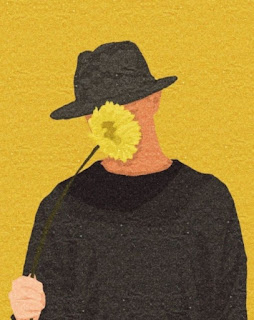Does he cry?
The beard on his face
And the biceps murmured.
Yes, he too cries,
The empty whiskey bottle
And the butted cigarettes protested.
He too has eyes,
of course,it produces tears
And not water.
The pent up suffocation and
Incomprehensible emotion
Combat for freedom.
Made one or two excuses,
Shut himself up for a day,
Cried for a long night,
Over the love of his life,
Over the wasted years,
Withered dreams,
Betrayed chums
Secluded failures
And the dead cat.
When your so-called wolf
Cries,
The ground neither shakes nor trembles,
The sky never falls.
The satellite society fails
To recognise the depressive males,
To console them
Or to embrace them
And to see a heart inside them.
The beast is not solely muscular,
'Femininity' weeps inside the dark lands of their hearts.
You have hammered the thoughts
That bald is not okay,
That intellect men are best
But it's okay to be You
It's okay to be different and imperfect.
You constantly jeopardize their identity,
Seeking them only in dominant
Seats.
Locking them up in staunch masculinity,
You engulf their expressive soul,
Producing caricatures.
But they would give you shocks,
They would cry and cry
Over their heart's demands.
Because there is a sheep in every wolf.
A.C

Comments
Post a Comment